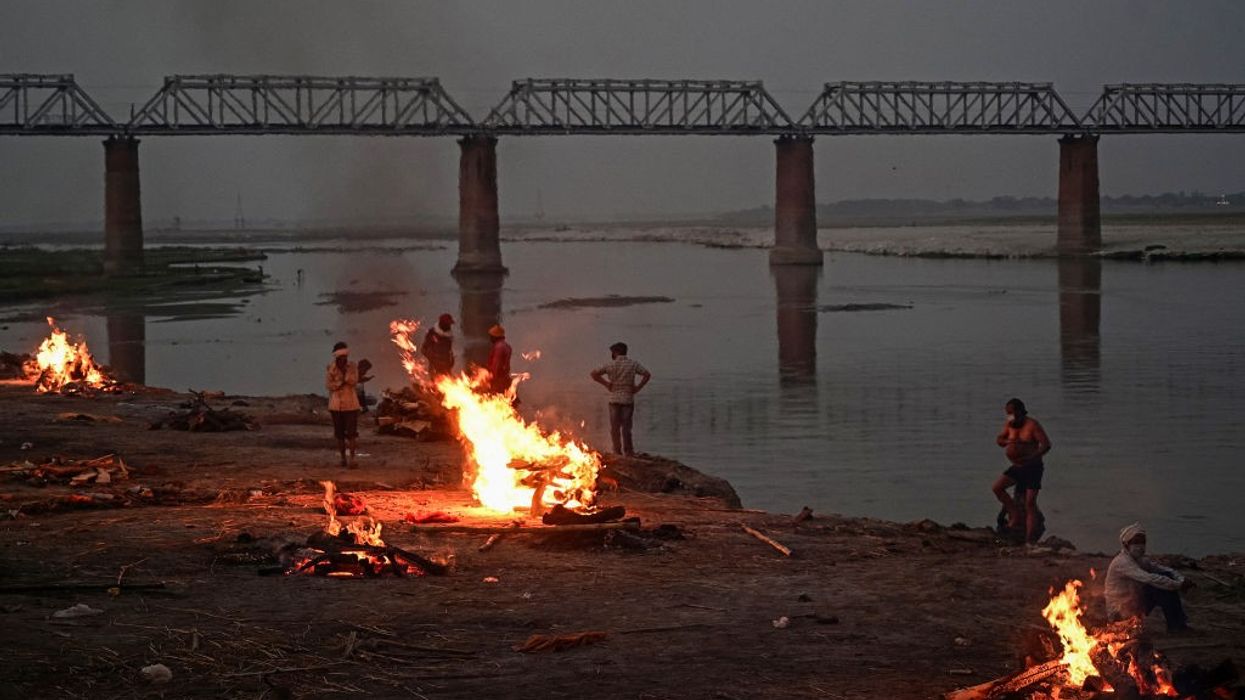AUTHORITIES in northern India said they have installed a net across the Ganges river after the bodies of dozens of suspected Covid-19 victims washed up.
The discovery of 71 corpses in Bihar state stoked fears that the virus was raging unseen in India's vast rural hinterland where two-thirds of its people live.
Locals suggested to AFP that relatives immersed the bodies in the river because they could not afford wood for traditional Hindu cremations or because crematoriums were overwhelmed by the number of funerals.
Bihar's water resources minister Sanjay Kumar said on Twitter on Wednesday (12) that a "net has been placed" in the river on the state border with Uttar Pradesh and patrolling increased.
He said the impoverished state's government was "pained at both the tragedy as well as harm to the river Ganges".
Kumar added that postmortems confirmed that the corpses had been dead four to five days.
Press reports said as many as 25 bodies had also been recovered in the Gahmar district of Uttar Pradesh state.
The Hindu daily quoted a local police official there as saying there were long queues at cremation grounds in the northern state.
"It is possible that in hurry some disposed of the bodies in the river like this," Hitendra Krishna was quoted as saying.
India's official Covid-19 death toll soared past a quarter of a million on Wednesday, but many experts believe the real number is several times higher.
This is particularly the case now that the surge has spread beyond major cities into rural areas where hospitals are few and far between and record-keeping poor.





